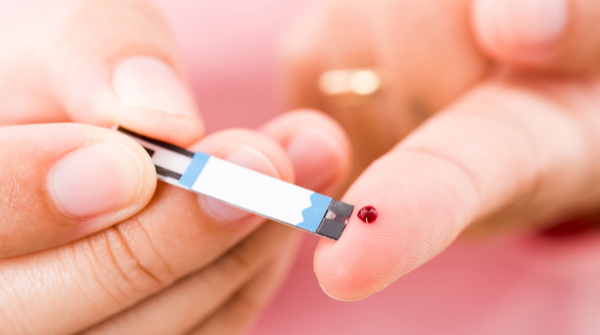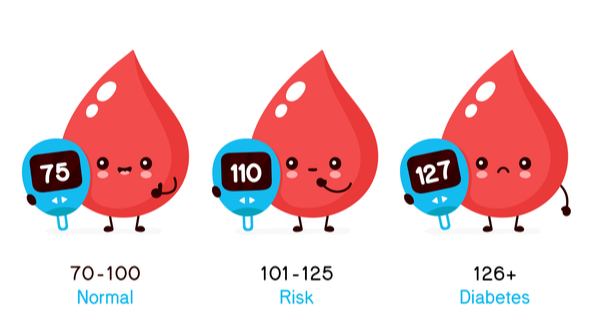

Understanding blood sugar levels is the key to diabetes management or prevention. It is important to know how the body reacts when the sugar present in the bloodstream is high or low. However, this can only be identified with the help of the common signs and symptoms of the specific condition. In this blog, we tell you everything about high blood sugar and the 8 common signs you must look out for. Let’s begin!




High blood sugar, as the term suggests is a condition where the sugar present in the bloodstream is higher than the normal range. Also known as hyperglycemia, the condition can be temporary, if treated on time.
Although the liver and muscles produce some amount of sugar, most of the glucose is provided by the food we eat. The glucose is then carried to all the blood cells of the body with the help of insulin. Insulin is a hormone produced by the pancreas (the organ situated next to the stomach).
Buy Now: Attar Ayurveda Kutki Herb Powder
In general, the pancreas releases insulin into the blood cells. However, in certain cases, the body is unable to produce insulin (Type 1 diabetes) or efficiently use the insulin produced (Type 2 diabetes). In such conditions, the cells don’t get the glucose needed and the same remains present in the bloodstream, thus causing high blood sugar levels.
Blood sugar levels can be easily monitored with the help of a blood glucose monitor, often known as a glucometer. All one needs to do is provide a tiny drop of blood from the tip of the finger and place it on the test strip inserted into the glucometer. You will be able to assess your present sugar readings in seconds.
Diabetes is a progressive condition in nature. Hence, the complications of high blood sugar levels are not just short-term but long-term too. One of the common ways diabetes can affect you, in the long run, is by damaging blood vessels.
Prolonged exposure to high blood sugar levels can damage the blood vessels in the eye, thus creating blurring vision. However, in the short run, the fluids in the eye move in and out, hence causing the lens to swell. As the shape changes, the vision becomes blurry. This can get resolved when blood sugar levels fall.
Buy Now: AccuSure AS BP Monitor Reliable Blood Pressure Monitor
Also known as polyuria, frequent urination is one of the easiest signs to understand that there is something wrong with your sugar levels. Under this condition, the body passes urine which is more than usual, in abnormal quantities. Polyuria is defined as the excess passage of urine that can amount to over 3 liters in a day when compared to the normal daily urine output is 2 liters a day.
The medical term for the increase in hunger during high blood sugar levels is known as polyphagia. In such a case, a person feels an increase in appetite due to muscles not getting the glucose they need. This is another important sign of high sugar levels since the same can cause insulin resistance. If the body is unable to use the insulin produced to provide glucose to the muscles, the tissues and muscles trigger the brain cells for food.
If you are suffering from unquenching thirst or feeling thirsty all the time, it is time to check your blood sugar levels. This happens because the body experiences dehydration when there is an excess amount of glucose present in the bloodstream. The body pulls fluid from the tissues to dilute the blood and lower high glucose levels. In this process, the tissues become dehydrated and hence send the message to the brain for more water. This has a direct relationship to another sign of high sugar levels, which is increased urination.
Please note that when someone is experiencing all three signs together, the chances of your sugar levels being high are likely to increase There are certain cases where the body experiences an imbalance of fluids that has no connection to high blood sugar levels.
Since the tissues and muscles of your body are not getting energy in the form of glucose, fatigue and tiredness can be likely signs of high blood sugar. The body experiences fatigue due to insulin resistance caused by high sugar levels. Please note, fatigue and tiredness are two different conditions. One feels better after resting if one is tired. However, if a person feels fatigued, resting does not help the feelings of exhaustion.
Clinically known as xerostomia, dry mouth is a condition when the mouth does not have enough saliva. Saliva is very crucial to control bacteria levels and washing away acid around teeth and gums.
Lack of saliva or dry mouth is another high blood sugar sign that can subsequently cause yeast infections too. Additionally, frequent urination, another high sugar sign, adds up to causing dryness in the mouth. Please note not everyone with diabetes will experience this condition and a person can experience dryness in the mouth without having high sugar levels.
Studies have shown that high blood sugar levels can cause difficulty in concentration. Although the brain is a completely tuned organ, it is also sensitive to the amount of sugar present in the bloodstream. As mentioned above, prolonged exposure to high blood sugar levels can cause damage to your vessels. Since the brain needs the energy to function properly and insulin resistance can cause the inability to transport glucose to brain cells, the body experiences difficulty in concentrating.
Healing wounds with high blood sugar levels is a longer process than usual. It becomes difficult to provide the essential nutrients for healing due to damaged blood vessels. This also affects the ability to sense a cut/wound on your skin and hence can invite skin infections if not treated on time.
Here are a few tips to take care of your high sugar levels:
Knowing the symptoms early and acting quickly is one of the ways to prevent high sugar levels and diabetes complications. It is advisable to consult a diabetes educator and seek help if you are experiencing the above-mentioned signs before it’s too late.
Author – Shahana Khatoon
Disclaimer: The content of this article is compiled information from generic and public sources. It is in no way a substitute, suggestion, or advice for a qualified medical opinion. Always consult a specialist or your own doctor for more information. BeatoApp does not claim responsibility for this information
Looking for a seasoned diabetologist? Choose Dr. Navneet Agarwal, an expert with 25+ years of experience. His specialisation in diabetology and obesity management provides personalised care. Elevate your health with a doctor’s recommended glucometer, buy now.